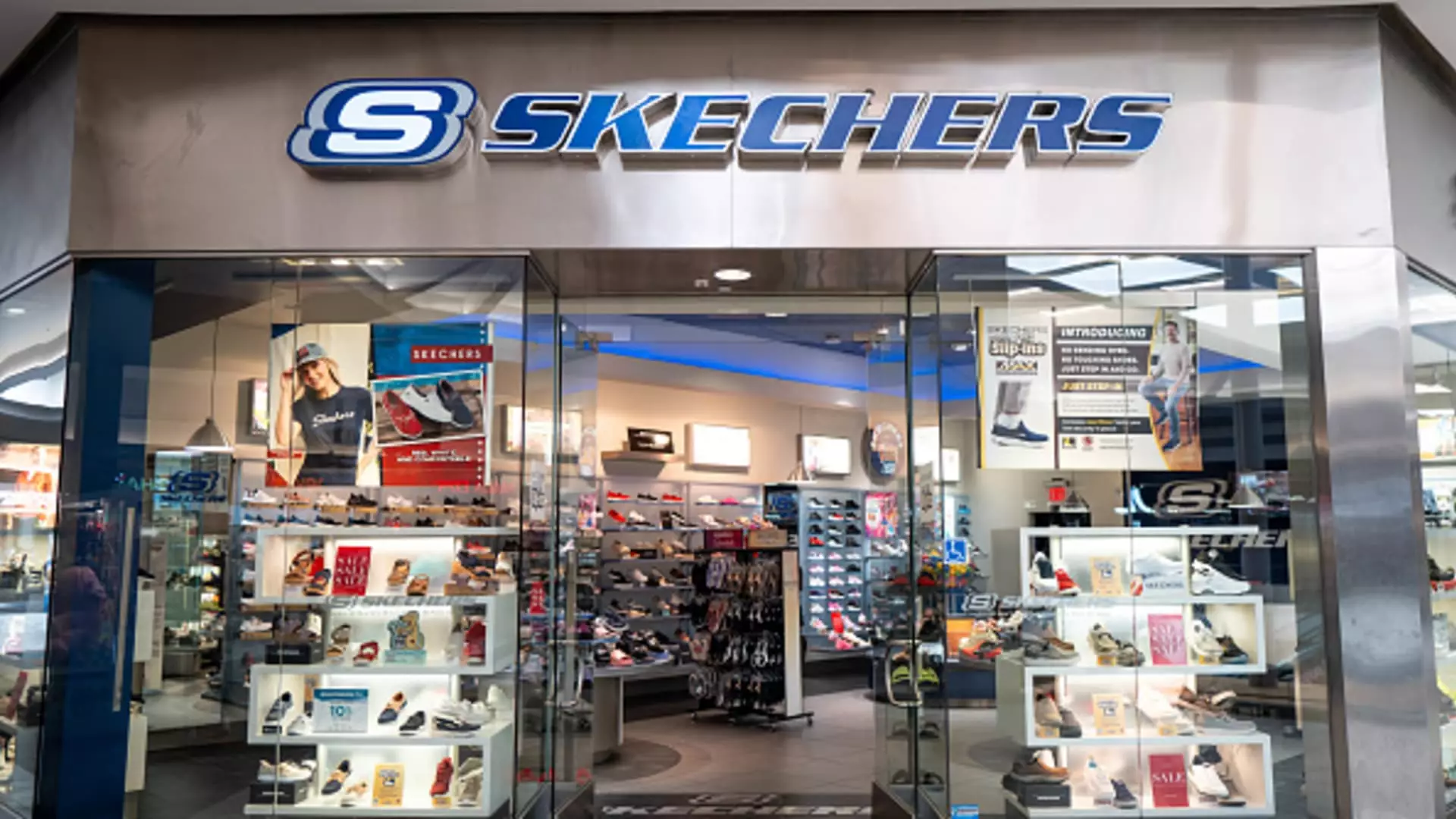In a surprising turn of events, footwear powerhouse Skechers has decided to sell its public identity to private equity titan 3G Capital for a staggering $63 per share. This transaction, which reflects a robust 30% premium over Skechers’ current market valuation, effectively seals the fate of a company that has thrived as a publicly traded entity for nearly 30 years. While financial analysts may perceive this as a strategic maneuver amidst challenging market conditions, it raises essential questions about the long-term implications for the brand, its customers, and the retail landscape at large.
Discretionary Spending: A Double-Edged Sword
The timing of this acquisition could not be more precarious. The retail sector, particularly footwear, is grappling with an economic climate where discretionary spending is under threat. With increasing tariffs and trade tensions, Skechers has found itself in the crosshairs of President Donald Trump’s trade war. Recently, the company signed onto a letter advocating for tariff exemptions, signaling its precarious position and heightened vulnerability. The decision to sell to 3G Capital amid such turmoil feels like a leap into the unknown—a desperate bid for survival rather than a confident stride into a prosperous future.
The Influence of Private Equity: A Cautionary Tale
3G Capital is renowned for its aggressive strategies that have often involved slashing costs to bolster profitability. This approach can yield short-term gains but at a significant cost to brand integrity and employee morale. It remains to be seen whether Skechers will maintain its core values and commitment to quality or become just another cautionary tale of a beloved brand diluted under financial pressures. CEO Robert Greenberg’s reassurance that the partnership will support “talented teams” feels overly optimistic in a climate where private equity’s voracious tactics can prioritize profit over people.
Global Trade Policies and Supply Chain Vulnerability
Adding another layer of complexity, Skechers has refrained from disclosing the specifics of its supply chain, primarily concentrated in Asia and particularly in China, which is confronting an unfathomable 145% tariff. The implications for profitability are alarming, especially when two-thirds of Skechers’ business occurs outside the U.S. The uncertainty surrounding global trade policies adds yet another layer of risk. One must question whether placing faith in 3G Capital, given these circumstances, is a prudent decision or a strategic error bound to haunt the brand.
Are We Witnessing the End of an Era?
Ultimately, the acquisition of Skechers by 3G Capital may appear financially sound but could spell the end of an era for a company steeped in public accountability and consumer trust. The question remains: Is this an acquisition that will elevate the brand or one that’ll diminish Skechers’ legacy? In a world increasingly skeptical of corporate machinations, the fallout from this high-stakes gamble may not be as benign as proponents suggest. If history is any teacher, the repercussions will unfold over time, and the saga of Skechers is far from over.

